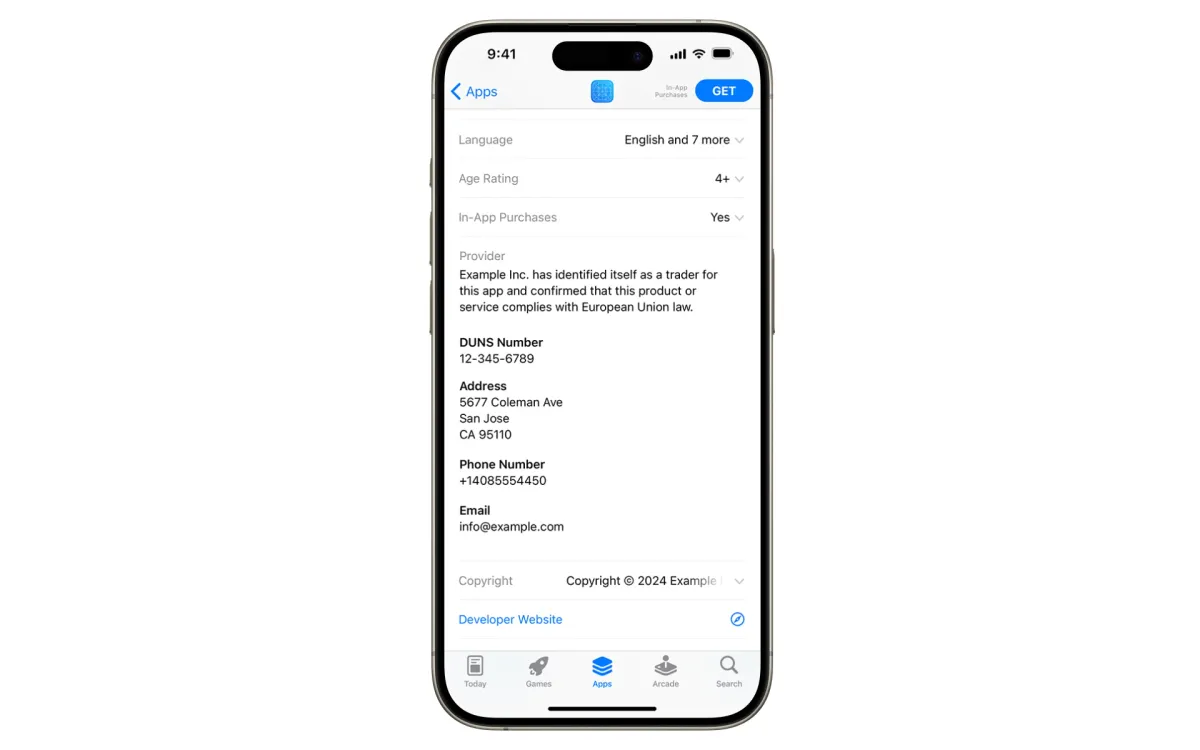

The European Union's Digital Services Act enforcement reaches a critical milestone as Apple announces mandatory trader verification requirements for all app developers distributing applications in the EU App Store. According to Apple's January 16 announcement, developers have until February 17, 2025, to declare their trader status and provide verification information, or their apps will be removed from the EU marketplace.
The Digital Services Act, which came into full effect for all platforms on February 17, 2024, mandates online intermediaries to verify and display trader contact information. According to the European Commission's documentation, the legislation aims to create a safer and more accountable online environment by implementing stricter verification processes for business entities operating on digital platforms.
Under Articles 30 and 31 of the Digital Services Act, Apple must verify and publicly display trader contact information for all businesses distributing applications in the European Union's 27 member states. According to Apple's compliance documentation, this information includes physical address, phone number, and email contact details that will appear on App Store product pages.
The European Commission defines traders as "any natural person, or any legal person irrespective of whether privately or publicly owned, who is acting, including through any person acting in his or her name or on his or her behalf, for purposes relating to his or her trade, business, craft or profession."
Several factors determine trader classification. According to the European Commission's guidance, these include generating revenue through in-app purchases, paid apps, or advertising, particularly in significant volumes. Additional indicators involve commercial practices toward consumers, VAT registration status, and whether the app development occurs within a professional or business capacity.
For organizations enrolled in the Apple Developer Program, the process requires verification of the address associated with their D-U-N-S Number, along with providing phone and email contact information. Individual developers must submit their address or P.O. Box, phone number, and email address for public display on their App Store product pages.
The verification process extends beyond active EU distribution. According to Apple's documentation, developers must declare their trader status even if they do not currently distribute apps in the European Union. This requirement ensures compliance across territories and prepares for potential future EU distribution.
Non-traders face specific marketplace implications. According to the Digital Services Act requirements, if a developer is not classified as a trader, consumers in the EU will be informed that consumer protection laws do not apply to contracts between the developer and users.
The February 17 deadline marks a significant shift in digital marketplace operations. According to the European Commission's implementation timeline, very large online platforms, defined as those reaching more than 45 million users in the EU, have already been operating under these rules since August 2023. The February 2025 deadline extends these requirements to all platform participants, regardless of size.
Enforcement responsibilities are divided between national authorities and the European Commission. According to the EU's documentation, while national authorities supervise platforms established in their territories, the Commission maintains primary responsibility for monitoring very large online platforms and search engines, particularly regarding systemic risk mitigation measures.
These regulatory changes reflect broader European Union efforts to strengthen digital market oversight. According to the European Commission's framework, the Digital Services Act operates alongside other digital regulations to create comprehensive consumer protection and market transparency measures across the EU's digital single market.
The implementation timeline provides a narrow window for compliance. With the January 16 announcement giving developers approximately one month to complete verification processes, the digital marketplace faces a significant operational adjustment period as platforms and developers align with new regulatory standards.

